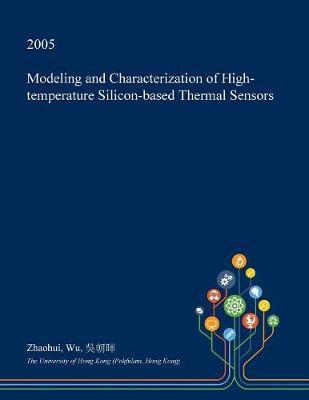Overview
This dissertation, Modeling and Characterization of High-temperature Silicon-based Thermal Sensors by Zhaohui, Wu, 吳朝暉, was obtained from The University of Hong Kong (Pokfulam, Hong Kong) and is being sold pursuant to Creative Commons: Attribution 3.0 Hong Kong License. The content of this dissertation has not been altered in any way. We have altered the formatting in order to facilitate the ease of printing and reading of the dissertation. All rights not granted by the above license are retained by the author. Abstract: Abstract of thesis entitled MODELING AND CHARACTERIZATION OF HIGH-TEMPERATURE SILICON-BASED THERMAL SENSORS submitted by Zhaohui Wu for the degree of Doctor of Philosophy at the University of Hong Kong in December 2004 Owing to the minority-carrier exclusion effect, the maximum working temperature T of silicon-based thermal sensors can be raised to 600 C. In this max research, models based on this effect are developed to explain the operating principle of high-temperature silicon-based thermal sensors. Substrates including bulk Si, thick-film silicon-on-insulator (SOI), thin-film SOI, solid-phase crystallization (SPC) polysilicon-on-insulator (POI) and metal-induced lateral-crystallization (MILC) POI are considered. One-dimensional and two-dimensional models are also proposed for rectangular and circular sensors respectively. The theory of minority-carrier exclusion effect is first introduced and investigated by a semiconductor-device simulator. Study shows that this effect can increase the T of the sensors by removing thermally generated charge carriers. In max order to obtain a higher T, a higher current density is needed to provide a stronger max i exclusion effect. This can be achieved by either increasing the operating current or reducing the silicon-film thickness of the sensor. A one-dimensional model is next developed to include the minority-carrier exclusion effect for the rectangular thermal sensors built on bulk Si, thick-film SOI and thin-film SOI, while a two-dimensional model is proposed for the circular sensors. Approximate carrier-mobility models are used to simplify the calculation of the resistance vs temperature characteristics of the sensors, and a two-step integration method is adopted to improve the accuracy of the model. The effects of minority-carrier lifetime and self-heating on the models are also considered. One-dimensional and two-dimensional models for thermal sensors built on SPC and MILC polysilicon films are next developed, based on the grain-boundary trapping theory. Based on these models, the effects of film doping concentration and grain size on the minority-carrier exclusion and electrical conduction of the thermal sensors are discussed. Finally, experiments are performed and compared with the models. Results show that the measured data qualitatively agree with the modeling results. In conclusion, the models developed in this research can be used to explain the operating principles of different high-temperature silicon-based thermal sensors, and hence guide the design of their structures. An abstract of exactly 326 words ii DOI: 10.5353/th_b3105765 Subjects: Silicon diodes - Design and construction
Full Product Details
Author: Zhaohui Wu ,
吳朝暉
Publisher: Open Dissertation Press
Imprint: Open Dissertation Press
Dimensions:
Width: 21.60cm
, Height: 0.90cm
, Length: 27.90cm
Weight: 0.381kg
ISBN: 9781374727359
ISBN 10: 1374727350
Publication Date: 27 January 2017
Audience:
General/trade
,
General
Format: Paperback
Publisher's Status: Active
Availability: Temporarily unavailable

The supplier advises that this item is temporarily unavailable. It will be ordered for you and placed on backorder. Once it does come back in stock, we will ship it out to you.



